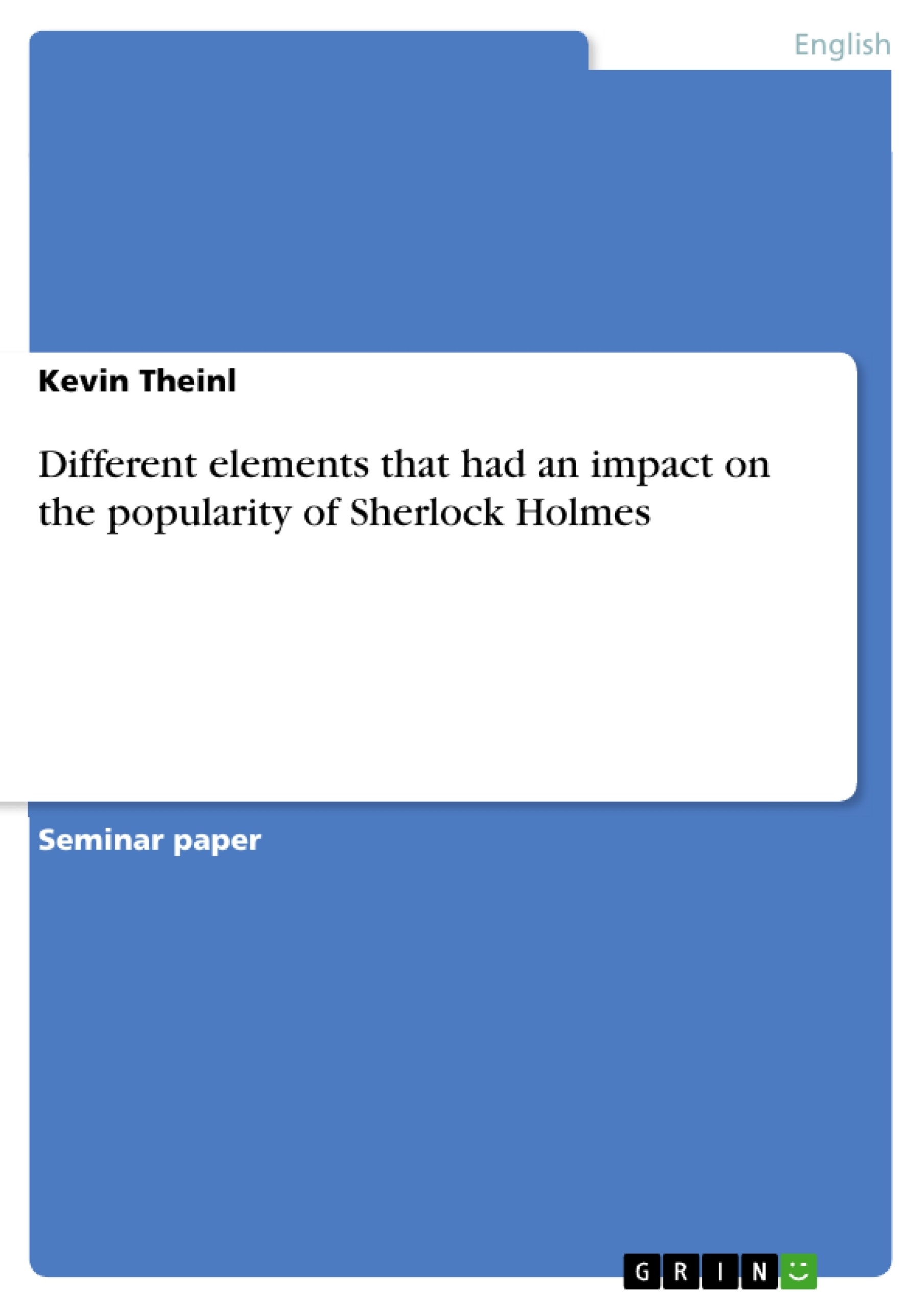The stories of Sherlock Holmes, known as ‘The Canon’ were written by Sir Arthur Conan Doyle in the Golden Age of Crime Fiction between 1887 and 1924. ‘The Canon’ consists of four novels and five volumes of short stories which have never been out of print. That makes a total of 60 tales. Within these 60 tales the setting and the protagonists Sherlock Holmes and Dr. Watson continue, while the plot and therefore the clients change in each story. Moreover, there were written more than twenty-four thousand of other books and articles about Sherlock Holmes. He was also imitated on stage and in films, as well as in different television series.
Sherlock Holmes is synonymous for a detective, who had an enormous success, because he had astonishing powers of examination and could solve crimes that could not be solved by the representative police, even when Scotland Yard could reduce the crime in London to this great enormity. But London needed a kind of superhero, who was more scientific than Scotland Yard. Sherlock Holmes was created and filled that gap with his genius to put down the remaining crime that could not be dissolved by others because of its complexity. His gift for observation and imagination, his exceptional personality, and his astounding logical deductions lead readers to talk and to write about Holmes as if he were a real person in their social environment. His prototype character with his well-known abilities of logical deduction has often been copied, but no one could develop a better character who was more influential and who stands for the brilliantly archetypal detective.
Inhaltsverzeichnis (Table of Contents)
- Introduction
- Motives that had an influence on Sir Conan Arthur Doyle for writing Sherlock Holmes stories.
- Different elements which had an impact on the popularity of Sherlock Holmes
- Style of narration: The function of Dr. Watson
- The use of exotic elements in the Sherlock Holmes stories.
- Holmes way of investigation towards justice.
- Conclusion
- Bibliography.
Zielsetzung und Themenschwerpunkte (Objectives and Key Themes)
This research paper investigates the factors contributing to the enduring popularity of Sherlock Holmes. The paper aims to explore the key elements that influenced Sir Arthur Conan Doyle in crafting the iconic character and delve into the narrative and stylistic choices that have captivated readers for generations.
- The influence of Sir Arthur Conan Doyle's personal life and experiences on the creation of Sherlock Holmes
- The role of Dr. Watson as a narrator and his impact on the story's appeal
- The use of exotic elements in the Sherlock Holmes stories and their contribution to the character's popularity
- Holmes' methods of investigation and his dedication to justice
- The lasting legacy of Sherlock Holmes and his influence on detective fiction
Zusammenfassung der Kapitel (Chapter Summaries)
The introduction establishes the context of Sherlock Holmes within the Golden Age of Crime Fiction, highlighting his enduring popularity and the vast body of work inspired by the character. It introduces the key themes of the paper: the motives behind Doyle's creation of Sherlock Holmes, the elements contributing to his popularity, and the lasting impact of the character on the genre.
The second chapter examines the influences that led to Sir Arthur Conan Doyle's creation of Sherlock Holmes. It explores how his personal life and experiences, particularly his admiration for his professor Joseph Bell, shaped the character. The chapter also discusses Doyle's inspiration from Edgar Allan Poe's detective Dupin.
The third chapter delves into the different elements that contributed to the popularity of Sherlock Holmes. It focuses on the role of Dr. Watson as the narrator, the use of exotic elements in the stories, and Holmes' distinctive approach to investigation and justice. The chapter explores how these elements combine to create a captivating and enduring character.
Schlüsselwörter (Keywords)
The key terms and concepts explored in this paper include: Sherlock Holmes, Sir Arthur Conan Doyle, Golden Age of Crime Fiction, Dr. Watson, narrative style, exotic elements, investigation, justice, enduring popularity, literary legacy, detective fiction.
- Quote paper
- Kevin Theinl (Author), 2011, Different elements that had an impact on the popularity of Sherlock Holmes, Munich, GRIN Verlag, https://www.grin.com/document/179367




